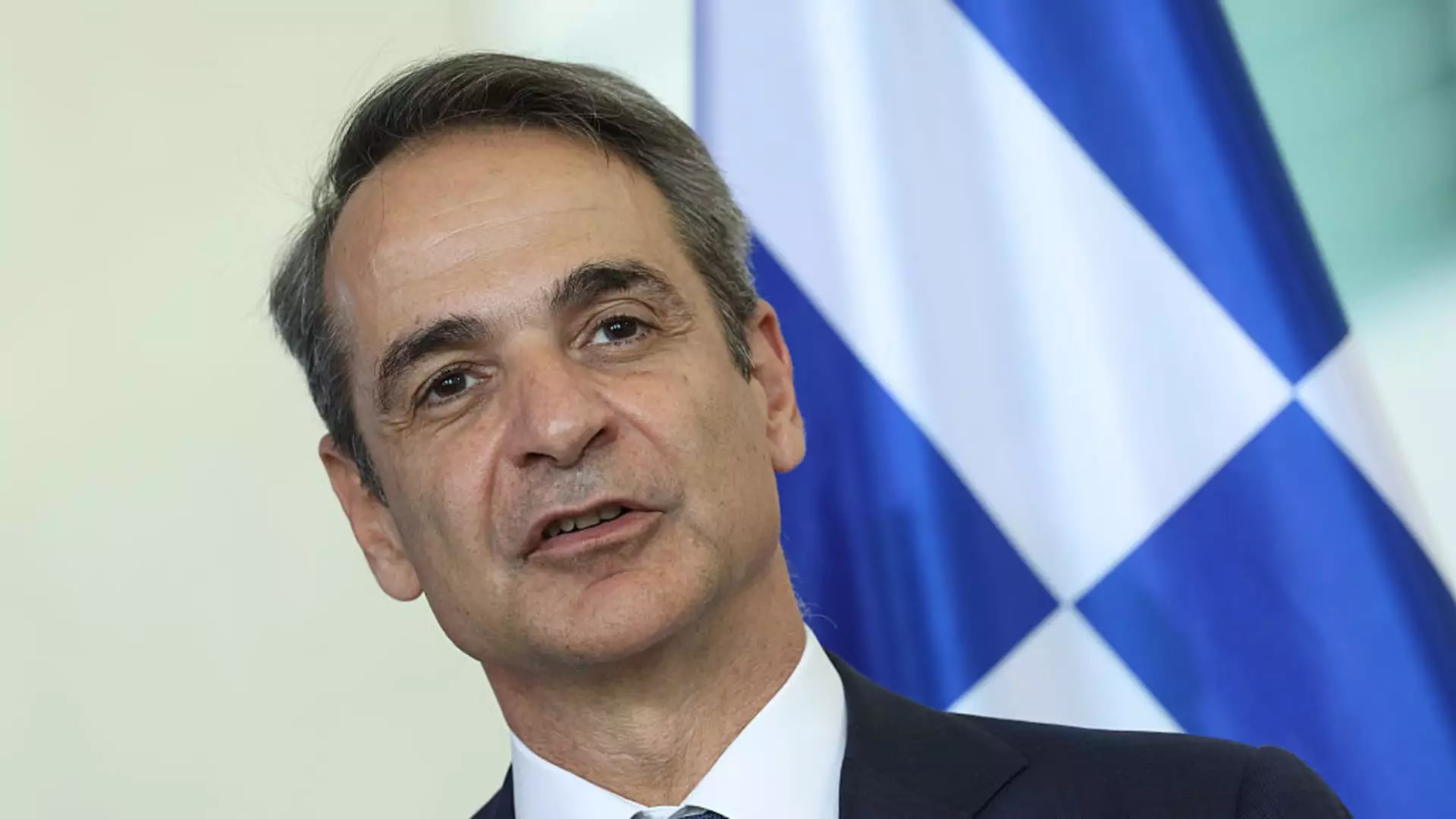In the beleaguered landscape of international relations, the concepts of national security and collective defense have led to strategic alliances that strive to preserve sovereignty while deterring aggression. Yet, the lofty demands of U.S. President Donald Trump regarding NATO defense spending often push the boundaries of realism. His insistence on increasing contributions to an unprecedented 5% of gross domestic product (GDP) reflects an imperious approach, one that fails to factor in the economic realities that member states face. Greece’s Prime Minister Kyriakos Mitsotakis, while addressing these concerns, poignantly highlighted the impracticality of such a figure, stating, “5% frankly, is very, very difficult.” His skepticism is not merely a reflection of national defense expenditures but a broader critique of Trump’s willingness to overlook practical limitations imposed by economic structures and political contexts.
The Reality of European Defense Budgets
Greece’s current defense spending of approximately 3.1% of GDP is already substantially above the NATO baseline of 2%. Many nations within the alliance grapple with the balance of their defense budgets while managing vital social services and economic growth. Mitsotakis suggests that an increase to 3.5% might be feasible, especially if ancillary security expenses are considered. This pragmatic viewpoint illustrates the chasm between the ambitious targets set forth by Trump and the lived realities of member nations. Other NATO leaders, such as Mark Rutte, have echoed this sentiment, proposing a more moderate 3.5% dedicated to direct defense and an additional 1.5% for broader security-related expenses. While this approach is less drastic than Trump’s demands, it still signals a troubling escalation that risks diverting financial resources from essential domestic needs.
Historical Context: A Collective Failure
President Trump’s admonitions that NATO allies have historically failed to meet even the existing 2% target resonate with a broader narrative of collective inadequacy. Mitsotakis himself tacitly recognizes this failure, asserting, “Donald Trump was right…because we didn’t.” This recognition of shortfalls brings to light a significant issue within NATO: the reliance on a select few nations, primarily the U.S., to shoulder the burden of security while others lag behind. This asymmetrical commitment, particularly in light of ongoing tensions with nations like Turkey, presents not only a challenge to NATO’s collective efficacy but also raises questions about the viability of its future. As allies face both economic constraints and domestic pressures, merely demanding higher spending without addressing the underlying systemic issues risks undue strain on an already fragile alliance.
Unpacking the Economic Implications
The ramifications of increased military spending extend beyond mere fiscal numbers on a budget sheet. The European Union’s rigid fiscal rules have long restricted member states from freely allocating funds in response to emerging security threats. While the European Commission has begun to ease these constraints, the sensitivity surrounding national budgets remains potent. Increasing military expenditure often means less funding for crucial areas such as education, health care, and infrastructure—sectors vital for a country’s long-term stability and growth. Mitsotakis alludes to these complexities when he notes the need for a European financial framework to support defense spending responsibly. This caution reflects a broader concern: that NATO’s escalating demands could herald an era of increased militarization at the expense of social well-being throughout Europe.
A Call for Strategic Flexibility
What is sorely needed at this juncture is not merely a re-evaluation of spending figures but a profound reconsideration of how NATO members approach defense. Forcing nations to meet arbitrary benchmarks will likely foster resentment and undermine the unity that NATO depends upon. The alliance must develop a more flexible framework that acknowledges member states’ diverse economic landscapes and security needs. As we stand on the precipice of a new geopolitical era, leaders like Mitsotakis are right to advocate for accountability without demanding dangerous and unrealistic commitments that could fracture the alliance. The future of NATO relies not on coercive spending targets but on collaboration that respects national sovereignty while acknowledging the shared responsibility for collective security.

Leave a Reply